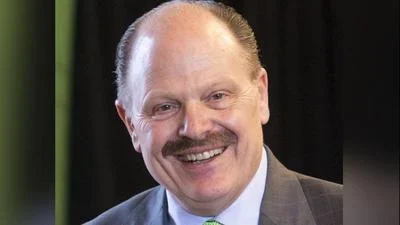Santa J. Ono, Ph.D. President at University of Michigan - Ann Arbor | Official website
Santa J. Ono, Ph.D. President at University of Michigan - Ann Arbor | Official website
In recent research conducted by the University of Michigan, it has been found that scientists who share their failures on social media are likely to gain more public trust. The study highlights that when scientists disclose their struggles, they are perceived as more honest and relatable compared to those who only showcase their successes. This perception encourages people to seek out science-related information and support science policies.
Co-author Annie Li Zhang, a doctoral student in communication and media at U-M, explained the significance of the findings: “We often hear that scientists should ‘be human’ online. This study helps show what that actually looks like in practice and how it can foster real connection with the public.”
The research analyzed different self-presentation strategies on social media platforms like X and examined how these affect public attitudes. It focused on posts highlighting either research successes or failures, sometimes accompanied by personal storytelling, to see how they influence perceptions of a scientist’s competence, integrity, openness, and benevolence.
An experiment involving 1,843 U.S. adults was conducted where participants viewed simulated social media threads from a fictional scientist. Some participants saw posts about a research success while others saw posts about failed experiments. Another variation included narratives about personal struggles during the research process.
Results showed that scientists sharing failures were seen as having more integrity and openness than those only sharing achievements. While failure did not enhance perceptions of competence, it also did not diminish them—challenging the fear among professionals that vulnerability might undermine credibility.
“Our findings suggest that people don’t necessarily see failure as incompetence,” Zhang stated. “Instead, they interpret openness about failure as honesty and even strength.”
However, adding personal stories about ongoing challenges did not always have positive effects. Participants rated scientists sharing unresolved struggles slightly less benevolent due to potential frustration or ambiguity.
The study explored psychological mechanisms such as expectancy violation and identification which contributed to these perceptions. When expectations of polished professionalism were positively violated by admissions of failure, participants responded warmly and identified more with vulnerable scientists.
Positive impressions influenced support for science funding and policy advice trustworthiness among participants who viewed open scientists favorably.
Hang Lu, U-M associate professor of media psychology and co-author emphasized: “People don’t just want information—they want connection. When scientists show they’re human, the public listens.”
This research suggests significant implications for engaging with skeptical audiences through social media by thoughtfully sharing setbacks without undermining credibility.
Researchers caution context is crucial; cultural norms around failure differ globally affecting audience reception outside the U.S., while active problem-solving portrayals may yield better reactions than mere endurance depictions.
Ultimately encouraging rethinking online presence strategies could benefit scientists aiming for public engagement effectiveness amidst growing skepticism towards expertise today.
___






 Alerts Sign-up
Alerts Sign-up